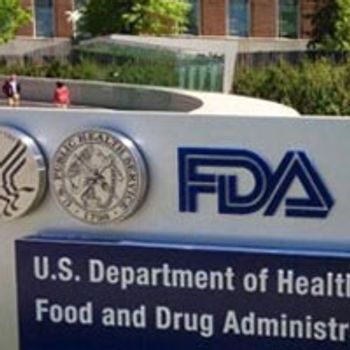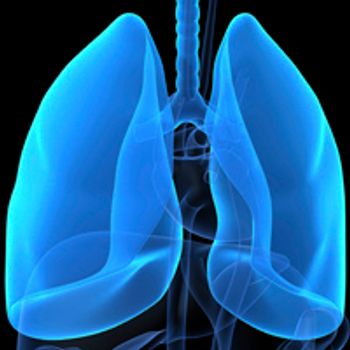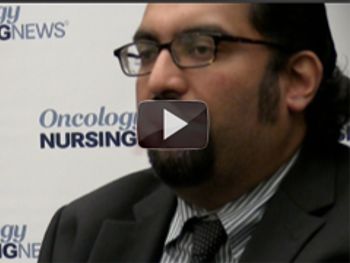
The FDA has granted an accelerated approval to pembrolizumab (Keytruda) for use in combination with pemetrexed plus carboplatin as a frontline treatment for patients with non-small cell lung cancer (NSCLC).

The FDA has granted an accelerated approval to pembrolizumab (Keytruda) for use in combination with pemetrexed plus carboplatin as a frontline treatment for patients with non-small cell lung cancer (NSCLC).

The FDA has granted accelerated approval to brigatinib for patients with metastatic ALK-positive non-small cell lung cancer (NSCLC) resistant to prior crizotinib (Xalkori).

With antiretroviral drugs easing the burden of AIDS-defining cancers in HIV-positive patients, the most common cancers in this population are expected to shift to those associated with aging.

Sixteen percent of patients with metastatic non-small cell lung cancer (NSCLC) receiving nivolumab survived after 5 years.

Fewer people are dying from cancer than years ago, according to a recent study.

A recent study has found that pembrolizumab (Keytruda) may be effective in treating patients with mesothelioma.

Stereotactic body radiation therapy (SBRT) is highly effective, and potentially curable for early-stage lung cancer, though not many physicians use the therapy, says expert Molly Freeman, CNP.

For patients with non-small cell lung cancer (NSCLC) receiving pembrolizumab, long-term survival rates could reach 25%.

Researchers have found that the incidence of lung cancer in people who have never smoked is increasing

A recent trial found that patients who receive telephone-based smoking cessation counseling at the time of lung cancer screening are more likely to quit smoking.

A current clinical trial for patients with non-small cell lung cancer (NSCLC) is evaluating tepotinib, a small molecule that targets an abnormality in the MET gene.

At the 2017 Cancer Survivorship Symposium, findings from a study were shared which suggested patients with lung cancer do not receive supportive and survivorship care.

A dynamic and uplifting evening of live music hosted by WBZ’s Jordan Rich to strike a chord and raise awareness of the changing face of lung cancer.

A recent study found that a significant number of patients with advanced lung cancer were not receiving potentially beneficial treatment.

It is important that caregivers for patients with lung cancer take care of themselves and ask for help when needed. This will ultimately make them better able to care for their loved ones.

Some of the leading nonprofits in the field are teaming together to improve the lives of patients with lung cancer.

According to a recent survey, most patients with lung cancer are willing to undergo additional biopsies if they have a grasp on how and why it could help them.

Pembrolizumab linked to improved quality of life for patients with non-small cell lung cancer (NSCLC), according to data from KEYNOTE-024 trial.

Upcoming studies at OSUCCC – James aim to determine the health effects of "vaping," smoking electronic cigarettes (e-cigarettes, or e-cigs) as compared to traditional cigarettes and on their own.

Karen Lee discusses the managment of immune-related adverse events in patients who are receiving immunotherapy treatments.

Bonnie J. Addario Lung Cancer Foundation and American Lung Associate have teamed up to create a lung Cancer Registry to connect patients with lung cancer with opportunities to support research and engage with others in the community.

Dr. Puneeth Iyengar expresses the importance of nutrition and hydration for patients with stage III lung cancer.

Molly Freeman, CNP, discusses the aftercare that goes into treating patients with lung cancer who have undergone stereotactic body radiation therapy (SBRT).

Survival in patients with lung cancer could be worse when those patients suffer depression symptoms.

Dr. Puneeth Iyengar discusses the use of a hypofractioned course of radiation therapy for patients with stage 3 NSCLC instead of a combination of chemotherapy and radiation.